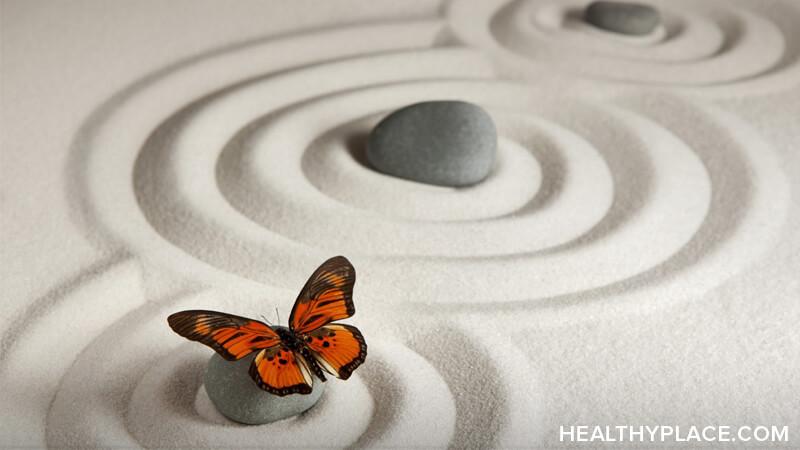Do This to Help Anxiety Amid Uncertainty, Chaos in the World

While it's too soon for an official poll to have been conducted regarding the mental health effects of George Floyd's death and the subsequent riots, it seems that our levels of anxiety and stress have taken another significant blow. With so much uncertainty and chaos in the world, it makes perfect sense to experience anxiety. That doesn't mean, however, that we're all powerless to regain personal control. You can use the following strategies to help your anxiety during this time of chaos and uncertainty.
Soothe Chaos and Uncertainty by Creating Meaning
Viktor Frankl was a neurologist and psychologist who developed logotherapy, a form of therapy involving creating meaning. Frankl was a Nazi concentration camp survivor who during the holocaust lost his wife and unborn baby, mother, father, and brother. During his imprisonment in four concentration camps, including death camp Buchenwald, he experienced and witnessed unspeakable human suffering, and he noticed that some people remained mentally healthy and strong despite the horrors. He observed that it was finding a sense of meaning that allowed people to rise above the atrocities and loss.
Logotherapy teaches that we aren't victims of circumstance but instead have the freedom to choose how we respond and act to every situation we face; further, it is by creating meaning and purpose that we reduce anxiety, stress, and depression and experience mental health and wellbeing.1
Since Frankl created logotherapy in the 1940s and 1950s, numerous studies have shown a strong link between meaning and mental health, and psychologists and therapists of many backgrounds (including cognitive behavioral therapy [CBT], acceptance and commitment therapy [ACT], rational emotive behavior therapy [REBT], and positive psychology) have incorporated it into their work to help people overcome obstacles and improve their mental health.2 The approach involves shifting focus from the negative aspects of life, including even severe challenges like those faced by Frankl himself in the Nazi camps, to realistically positive ones.3
How to Create Meaning Amid Chaos and Uncertainty
The very first step in creating meaning in your life is to know that meaning is personal. In general, it is something that gives you a sense of purpose. Meaning is your "why." It is your reason for living in each individual moment. It most certainly doesn't require grand, profound gestures to change the world. Some people find meaning in peaceful demonstrations for justice, while others have no desire for political activism.
Don't add stress and anxiety to your plate by berating yourself for not wanting to be visibly involved in change. Some people find meaning in creating a calm, happy home that feels comfortable and safe. Others find meaning in creating art or music. Still others enjoy being kind to people they see on a daily basis. The key is to discover what gives you a sense of purpose and contentment and then to do more of it.
How, though, do we do that when the world around us has been turned upside down, so much is out of our control, and we are worried about our health, safety, and security? Viktor Frankl provides a guide:
Between stimulus and response there is a space. In that space is our power to choose our response. In our response lies our growth and our freedom.
Here's how that can look for us:
- Rather than instantly reacting to the chaos, embrace your space. The space is silence. It's a pause. To exist in that brief space is to be mindful. When you notice yourself reacting physically and mentally to events around you, turn your attention away from the problem and simply exist in your immediate moment. What do you see/hear/feel/smell around you? Just be present, noticing quietly.
- Then, determine what's important right now. What, right now in this moment, is important to you? Is it reassuring a loved one? Making a healthy meal for yourself or family? Turning off the computer or television and walking away from your phone? Taking a brisk walk to clear your mind and relieve the physical symptoms of anxiety? What do you need in this moment in order to reduce anxiety and boost your mental health?
- Respond. In your brief pause, your space, you can choose how you want to respond. How do you want to be in your moment? What do you want to do? Choose actions that bring personal meaning in the moment, and do them mindfully with intention.
In pausing and choosing a meaningful response to what's happening around us, we regain personal control. We reduce automatic, negative, anxious reactions and replace them with calm, purposeful responses. We not only help our own anxiety and mental health, we positively affect those around us. The ripples of our meaningful actions born out of that mindful space can become larger, gentle waves of wellbeing expanding both inward and outward.
Sources
- Batthyany, A., "Logotherapy and Existential Analysis." Viktor Frankl Institute, Accessed June 3, 2020.
- Selva, J., "Logotherapy: Viktor Frankl's Theory of Meaning." PositivePsychology.com, Updated May 28, 2020.
- Schulenberg, S. et al, "Logotherapy for Clinical Practice." Psychotherapy Theory, Research, Practice, Training, 2008.
APA Reference
Peterson, T.
(2020, June 4). Do This to Help Anxiety Amid Uncertainty, Chaos in the World, HealthyPlace. Retrieved
on 2026, March 4 from https://www.healthyplace.com/blogs/anxiety-schmanxiety/2020/6/do-this-to-help-anxiety-amid-uncertainty-chaos-in-the-world